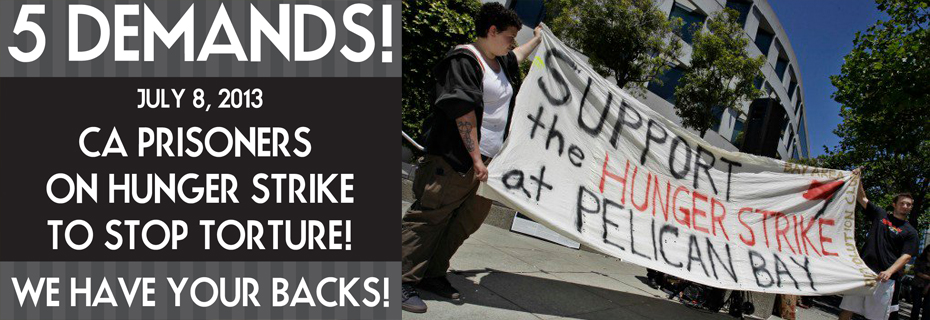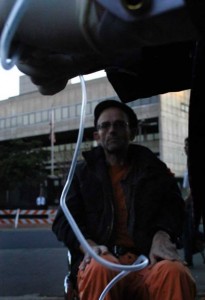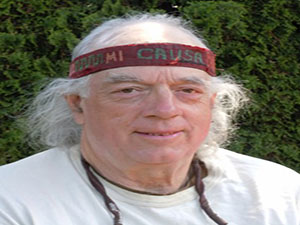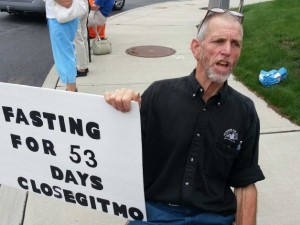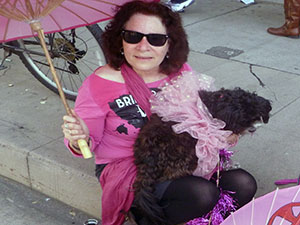July 8, 2013 – Peaceful Protest & Hunger Strike
Resumes if California Prisoner Demands Not Met
People imprisoned at Pelican Bay State Prison in California have called for a nationwide Hunger Strike to begin on July 8, 2013. They have also issued a call for unity among people from different racial groups, inside and outside the prisons. People who are locked down in segregation units of this society’s prisons, condemned as the “worst of the worst,” are standing up against injustice, asserting their humanity in the process. We must have the humanity to hear their call, and answer it with powerful support!
A nationwide and worldwide struggle needs to be launched NOW to bring an end to this widespread torture BEFORE those in the prisons are forced to take the desperate step of going on hunger strikes and putting their lives on the line! The Stop Mass Incarceration Network is calling on people to help develop plans to support the prisoners.
See also: Prisoner Hunger Strike Solidarity
Support Pelican Bay SHU Prisoners’ Five Core Demands
1. Eliminate group punishments. Instead, practice individual accountability. When an individual prisoner breaks a rule, the prison often punishes a whole group of prisoners of the same race. This policy has been applied to keep prisoners in the SHU indefinitely and to make conditions increasingly harsh.
2. Abolish the debriefing policy and modify active/inactive gang status criteria. Prisoners are accused of being active or inactive participants of prison gangs using false or highly dubious evidence, and are then sent to longterm isolation (SHU). They can escape these tortuous conditions only if they “debrief,” that is, become informants on other prisoners. Debriefing produces false information (wrongly landing other prisoners in SHU, in an endless cycle) and can
endanger the lives of debriefing prisoners and their families.
3. End longterm solitary confinement. Comply with the recommendations of the US Commission on Safety and Abuse in Prisons (2006) regarding an end to longterm solitary confinement. This bipartisan commission specifically recommended to “make segregation a last resort” and “end conditions of isolation.” Yet as of May 18, 2011, California kept 3,259 prisoners in SHUs and hundreds more in Administrative Segregation waiting for a SHU cell to open up. Some prisoners have been kept in isolation for more than thirty years.
4. Provide adequate and nutritious food. Prisoners report unsanitary conditions and small quantities of food that do not conform to prison regulations. There is no accountability or independent quality control of meals.
5. Expand and provide constructive programs and privileges for indefinite SHU inmates. The hunger strikers are pressing for opportunities “to engage in self-help treatment, education, religious and other productive activities…” Currently these opportunities are routinely denied, even if the prisoners want to pay for correspondence courses themselves. Examples of privileges the prisoners want are: one phone call per week, and permission to have sweatsuits and watch
caps. (Often warm clothing is denied, though the cells and exercise cage can be bitterly cold.) All of the privileges mentioned in the demands are already allowed at other SuperMax prisons (in the federal prison system and other states).
Note: After the second hunger strike, the CDCR issued watch caps to the prisoners, and now allows them to buy sweat suits.
